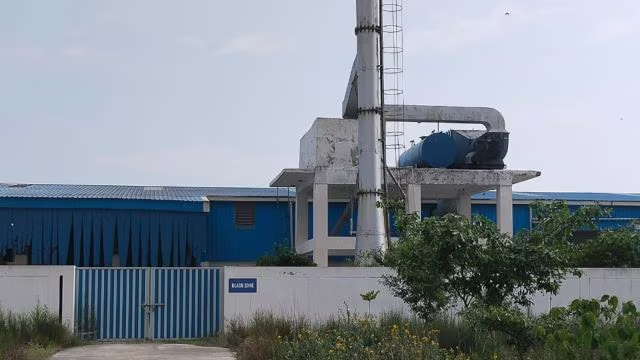21 august 2024 : Ludhiana administration Tuesday informed the National Green Tribunal (NGT) that an automated plant set up at Noorpur Bet village to process animal remains has remained shut for the last over three years as agitating villagers fear “social stigma, ostracization, fall in the value of their land etc..”
Ludhiana deputy commissioner Sakshi Sawhney, through an affidavit, informed the green court that she has met the villagers who are not allowing the plant to become operational due to their earlier visit to the carcass plant at Jodhpur in Rajasthan, which is “unscientific and of older design” as per a report submitted by the Punjab Pollution Control Board (PPCB).
The Rs 7.98-crore plant setup under Smart City project has continued to remain shut amid protests by residents from nearby villages. The matter had reached NGT after local activist Jasjit Singh Gill pleaded that open dumping of carcasses (practise locally called hadda rodi) near Sutlej river was causing water pollution and environmental degradation, and hence the plant must be operationalized at the earliest.
It is only third such plant in the country — the other being in Jodhpur and Delhi — with capacity to handle 150 carcasses a day and process them into into poultry feed granules while separating horns and hooves without any manual operation.
In her affidavit, Sawhney informed the tribunal: “After various meetings with the agitators, it was felt that one of the main reasons for the heavy resistance amongst the protestors of the 23 villages was their visit to a carcass utilisation plant at Jodhpur and the issues of odour etc of the local residents of the village at Keru (Jodhpur) of which videos were made viral and it was felt by the agitators that social stigma, ostracization, fall in land value would befall them as well. Although, Punjab Pollution Control Board (PPCB) has vide its report proven that Jodhpur plant was unscientific and of older design, the agitators have not yielded.”
Speaking to The Indian Express, Sawhney said that the NGT has also been informed that the Punjab government has constituted a cabinet sub-committee to resolve the issue at the earliest.
Sawhney further informed the tribunal that later it was decided to address the concerns of the villagers by arranging a visit to the plant at Ghazipur of Delhi (the only scientifically working carcass plant in the country) where their doubts regarding the technology could be removed. However, “the agitators thereafter refused to accompany the PPCB.”
“PPCB then undertook its on-site survey at Ghazipur and submitted its detailed analysis.. Briefly its findings were that “establishment of Carcass Utilisation Plant in the common complex with similar processes (slaughter house and rendering plant) by Municipal Corporation Delhi (MCD) maybe one of the reasons for its successful operation even though the Carcass Plant of MCD is semi-mechanised and technically it is less modern as compared to the plant established by Municipal Corporation, Ludhiana.”
The affidavit adds that Ludhiana Municipal Corporation Commissioner Sandeep Rishi in his report has suggested that the plant might be shifted to some other location in view of unrelenting agitation by the villagers and the contractor concerned has been asked to assess the cost of shifting it. A high-level meeting in this regard will soon be conducted by Punjab government’s secretary for science, technology and environment.
Meanwhile, Rishi, in a separate reply, also informed the NGT that on January 3 this year, when a team of MC along with a police contingent of 200 visited the site to make it operational, they were “hindered by a large number of villagers including senior citizens, females and children on the ground that their religious sentiments will be hurt by emission of foul smell from the plant.” They also raised the possibility of degeneration of underground water. Rishi has further informed the NGT that in view of continued protests and law and order situation, the administration may have to explore the option of shifting it to some alternate location.
Gurindar Singh Majithia, member secretary, PPCB, in a separate status report submitted to the NGT has informed that “the protestors comprised of old, infirm and women along with Kisaan union leaders. Despite repeated negotiations with the protestors, they were reluctant to allow the administration to operationalize the plant. They kept raising the concerns of foul smell and degeneration of underground water due to operationalization of the plant. The protestors were also apprehensive’ that the carcass utilization plant will deteriorate the ‘ general atmosphere of nearby 12 villages and expressed concerns that the Carcass plant will Isolate these nearby villages and would destroy the social fabric.”

